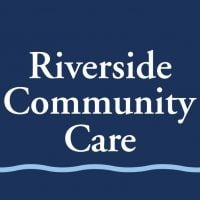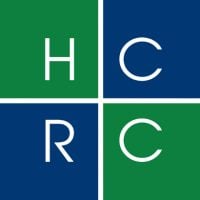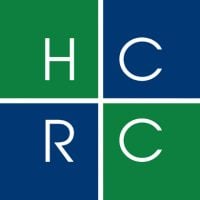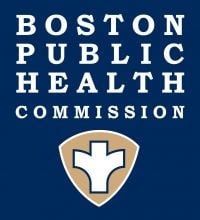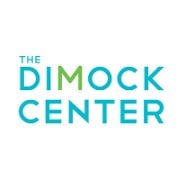Riverside Community Partners BH CP - Connect2Recovery
Drug Rehab Center in Dedham, Massachusetts
Connect2Recovery in Massachusetts offers customized treatment plans for addiction, mental health, and dual-diagnosis recovery, featuring experienced staff and a range of therapies designed to provide long-term, successful recovery.
About
Riverside Community Partners BH CP - Connect2Recovery is an addiction treatment facility located in Dedham, Massachusetts. With a focus on helping individuals suffering from substance abuse, dual diagnosis, drug addiction, and mental health issues, Riverside Community Partners BH CP - Connect2Recovery offers a range of comprehensive treatment programs. The facility accepts private health insurance, making it accessible to those seeking professional help to overcome their addiction. As an affiliate of Riverside Community Care, a trusted organization in the field of mental health and addiction treatment, Riverside Community Partners BH CP - Connect2Recovery is committed to providing high-quality care and support to individuals on their journey to recovery.
At Riverside Community Partners BH CP - Connect2Recovery, individuals have access to various levels of care including drug rehab, dual-diagnosis treatment, outpatient services, and residential programs. Their treatment approach is designed to address both the physical and psychological aspects of addiction, providing a holistic approach to recovery. Through evidence-based practices and a person-centered approach, the facility offers individualized treatment plans tailored to meet each client's unique needs and goals.
Riverside Community Partners BH CP - Connect2Recovery combines traditional therapeutic techniques with innovative treatment methods to ensure the best possible outcomes for their clients. Services such as individual and group therapy, family counseling, relapse prevention, and medication management are offered to address the complex issues associated with addiction. With a team of experienced and compassionate professionals, Riverside Community Partners BH CP - Connect2Recovery strives to provide a supportive and nurturing environment where individuals can regain control of their lives and achieve long-term sobriety.
Genders
Ages
Modality
Additional
Conditions and Issues Treated
Recovering from substance abuse is an essential part of a healthy life for many people. It’s a long and challenging process, but it can be worth it in the end if you manage to get through all parts. Detoxifying your body, rehabilitation after that time passes or when needed (depending on what type), and then recovery while also receiving therapy support throughout this entire process.
A standard route to starting recovering from substance abuse and addiction is through a detoxification center. There you can completely heal your body and mind and continue on the path of recovery without feeling any of the lingering effects of substances.
A person who struggles with addiction and a mental health condition suffers from a dual diagnosis. This means that they have two issues that must be treated. The specific mental health issues that the patient at Riverside Community Partners BH CP - Connect2Recovery might have include but are not limited to:
- Depression
- Bipolar Disorder
- Anxiety
- PTSD (Post Traumatic Stress Disorder)
The specific addiction issues that the patient might have include but are not limited to:
- Alcoholism
- Drug Addiction (i.e., Cocaine, Meth, and other stimulants, Marijuana, and Ecstasy)
The combination of the two illnesses can be tough to treat. Taking care of one or the other is tough, and taking care of both cannot be done alone. A patient who receives dual diagnosis treatment will be given the best chance at becoming sober.
Levels of Care Offered
This center offers a variety of custom treatment tailored to individual recovery. Currently available are Drug Rehab, Dual-Diagnosis, Outpatient, Residential, with additional therapies available as listed below.
An outpatient treatment program is set up to help with alcohol or drug addiction or a co-occurring disorder. The treatment must attend the treatment facility for their therapy and other programs but return home each night. The frequency of mandatory attendance decreases after much of the treatment program is complete. The treatment programs are monitored by the treatment facility and case managers who work for a judge or judge’s office. A treatment program may be performed out of a treatment facility, treatment clinic, or treatment center.
The benefits of outpatient treatment programs are many. One of the most beneficial treatment programs is that it allows treatment for clients who cannot afford or may not be able to attend treatment at a treatment facility, treatment center, or treatment clinic full-time. Another benefit of treatment programs is that they reduce crime rates because treatment allows people to treat their addiction.
Residential treatment programs are those that offer housing and meals in addition to substance abuse treatment. Rehab facilities that offer residential treatment allow patients to focus solely on recovery, in an environment totally separate from their lives. Some rehab centers specialize in short-term residential treatment (a few days to a week or two), while others solely provide treatment on a long-term basis (several weeks to months). Some offer both, and tailor treatment to the patient’s individual requirements.
Therapies & Programs
Individualized Treatment is essential because it gives addicts the ability to participate in a program that meets their unique needs. An addict should work with professionals who understand what they’re going through, especially if the addict is actively using. Finding the right treatment program for an addict is difficult, but it’s even harder without communicating with those who have experience treating your specific situation.
The therapies typically involve all family members, potentially including siblings, children, and parents who play a role in their daily lives. These sessions can be essential because they address past issues that may have affected an addict or alcoholic’s recovery process. They provide support during this time when it is needed most!
A family therapy session, often called a family meeting or intervention, is a necessary process that helps loved ones of addicts see their situation in a new light. It’s also one of the most challenging things families will ever have to do when they’re facing a loved one battling addiction or alcoholism.
Group therapy sessions provide recovering addicts with a chance to cope with everyday situations that many face. Group therapy sessions are held in rehab facilities, clinics, churches or community centers that offer drug addiction treatment.
People who attend these groups are encouraged to voice their feelings and support other addicts in recovery. This helps group members strengthen their own recovery program while cheering on others who are struggling with sobriety.
Trauma therapy allows them to work through past trauma to have peace of mind and begin down the road of sobriety. The therapist will work with the individual to help them understand their past and present relationships. Patients may often believe that something is inherently wrong with them or they are unworthy of love. The therapist aims to correct these negative feelings and behaviors by helping the person realize that their actions do not reflect who they truly are.
Dialectical behavior therapy, or DBT, is one form of cognitive behavioral treatment. This type of therapy typically involves both individual and group sessions with a therapist on a regular basis.
It uses concepts like mindfulness training to help addicts learn how to identify their thoughts, feelings, behaviors and the experiences that trigger them so they can avoid relapse. DBT also teaches addicts how to regulate their emotions, which can make it easier for them to avoid or overcome negative thoughts and cravings.
Cognitive Behavioral Therapy (CBT) is a highly effective treatment option based on the idea that how we feel, think and act all interact together. Our thoughts determine our feelings and behaviors; our feelings affect our thoughts, and our behaviors change our thoughts and feelings. CBT helps people explore their thoughts for problems (or false beliefs) that influence their mood and actions. By examining their thoughts and beliefs, people can recognize distorted or irrational and modify them to more realistic, positive ones. CBT is very goal-oriented, which means that the therapist and patient work together on a specific problem while learning to become more adept at solving future problems.
CBT works well with a broad range of people, including those with depression, anxiety disorders, eating disorders, and problems with anger. In addition to helping a client focus on thoughts that can be changed, CBT also allows them to take an active role in their treatment. This is called a collaborative approach because both patient and therapist work together to produce the best possible results.
CBT is based on cognitive learning theory, which says that our behavior is a learned response to our environment. Cognitive refers to thoughts and beliefs, while behavioral relates to actions or deeds. CBT helps people learn ways of behaving to improve their quality of life by focusing on specific problems or goals they want to achieve. Sometimes, CBT is used alone; other times, it is combined with medications or brief counseling techniques such as solution-focused and motivational interviewing to achieve optimal results for the patient.
Payment Options Accepted
For specific insurance or payment methods please contact us.
Is your insurance accepted?
Ask an expert, call (888) 674-0062
Riverside Community Care Associated Centers
Discover treatment facilities under the same provider.
- Riverside Community Care - Milford in Milford, MA
- Riverside Community Care - Needham in Needham, MA
- Riverside Life Skills Center in Somerville, MA
- Riverside Psychiatric Day Treatment in Wakefield, MA
- BH CP Riverside Team - Milford in Milford, MA
Learn More About Riverside Community Care Centers
Additional Details
Specifics, location, and helpful extra information.
Dedham, Massachusetts 2026 Phone Number(781) 619-5000 Meta DetailsUpdated November 25, 2023
Staff Verified
Patient Reviews
There are no reviews yet. Be the first one to write one.
Dedham, Massachusetts Addiction Information
Massachusetts has one of the highest rates of drug abuse in the country. More than half a million Massachusetts residents abuse alcohol while more than 1.5 million use illegal drugs each year. This drug and alcohol usage is the cause of over 8% of all deaths in the state. In 2017, Massachusetts ranked in the top 10 of the states with the highest opioid overdose rates.
Treatment in Nearby Cities
- Norwell, MA (20.9 mi.)
- Ashby, MA (43.5 mi.)
- Johnson City, MA (725.1 mi.)
- Rutland, MA (40.1 mi.)
- New Bedford, MA (45.0 mi.)
Centers near Riverside Community Partners BH CP - Connect2Recovery
The facility name, logo and brand are the property and registered trademarks of Riverside Community Partners BH CP - Connect2Recovery, and are being used for identification and informational purposes only. Use of these names, logos and brands shall not imply endorsement. RehabNow.org is not affiliated with or sponsored by Riverside Community Partners BH CP - Connect2Recovery.
